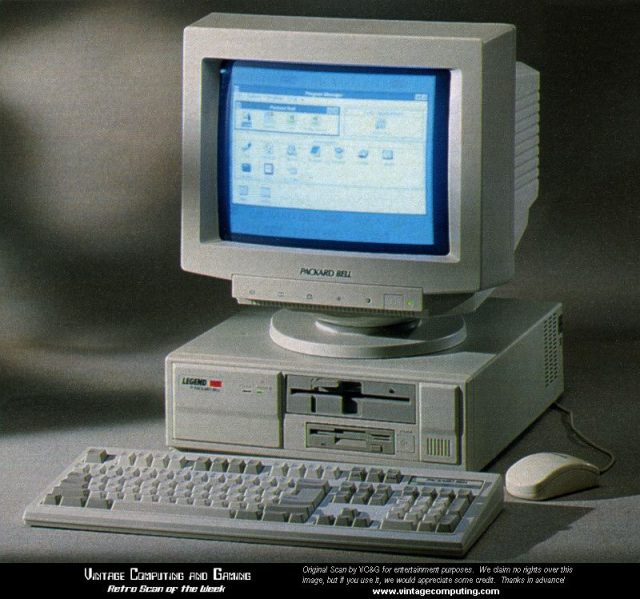The 1990s
Ah, yes, the 90s. I can hear the sweet, gentle pinging of my external, dial-up modem as I write this. For those of you that were not in the workforce in the 90s I will describe them a little bit. Information was a highly guarded commodity. Decisions were made at the top of an organization and then were slowly communicated downward through hierarchical, command and control structures – often times via physical memos that were shuffled from physical inbox to physical inbox (yes, really). Although most companies adopted email on their own networks at some point during the 90s, I knew executives who had their administrative assistants print out their emails and type in their responses. It was a sign of your power and position to be able to proudly proclaim that you ‘refused to use email’. So email was a step in the right direction but it did not change the prevailing mindset. (For the record I was relatively new in the work force at the time and I was definitely reading and writing my own emails!) Yes, data and information meant power. The more data and information you had the more powerful you were. If the data was difficult to interpret and you were required to be physically present to explain what it all meant, then that was even better. More power and control! It was in the 90s that we began to see the rise of the one-off, ‘server under the desk’, departmental MS Access database with all the important information for the executive running the department. These data troves were jealously guarded and were rarely spoken of publicly. No one in their right mind was freely sharing data and information. Why give away such a valuable commodity for free? Where was the payoff? There was none.
Genome for Today’s Data Culture
What I have just described is the genome for today’s data culture. Sharing of data and information is simply not in the DNA of today’s data culture. If we ran today’s data culture through Ancestry.com, the one thing we know we won’t find is a picture of a long lost relative getting an award for sharing data with colleagues and enforcing data standards. 23andme, the DNA testing company, would probably find a ‘data hoarding’ gene rather than a ‘data sharing’ gene. The fact of the matter is that in too many organizations today, sharing of data is not valued and information is still power (and no one freely gives away power). The culture of data and data sharing in companies has simply not kept pace with advancements in data management and analytics technologies.
So why is this important and what does culture have to do with it?
Importance of Data Culture
Culture is what silently influences the behavior of people without their conscious awareness. Culture is ‘how we do things around here’. Culture is ‘how we have always done it’. Culture reflects the values of an organization. Culture lets you know how you can behave and be sure that no one will call you out over it. Culture is a belief and behavior system that we all agree to follow either explicitly or implicitly. Not following the culture can lead to being ostracized and for most of human history that meant death (and we as humans are not very big on death).
The Future of Big Data
With some guidance, you can craft a data platform that is right for your organization’s needs and gets the most return from your data capital.
“Culture eats strategy for breakfast, lunch and dinner” – Peter Drucker
This quote is attributed to Peter Drucker and speaks to the fact that no amount of strategic pronouncements or data governance initiatives or cross department big data teams can overcome the baseline culture of an organization.
How to Assess Data Culture
Is your data culture stuck in the 90s? Here are some questions to help assess your data culture:
- Is there any institutional incentive to share data, enforce data standards and work to continually improve data quality (eg bonuses, public recognition, etc)?
- How is power and responsibility obtained and retained in the organization? Does holding onto data and ignoring data standards help or hurt a person advance and gain power?
- How are heros and heroic efforts defined and celebrated internally? If a team or person ‘saves the day’ at the last minute by working the weekend to scrub, normalize and consolidate bad data are they celebrated as heros and that’s it or is there also a recognition that something is fundamentally wrong with the process?
- Has the importance of data made its way into the mythology and lore of the organization? Are there any good stories that get told and retold about how attention to data and data sharing had a positive impact on the company (eg leapfrogged the competition, radically changed customer experience, developed new products, saved company from irrelevance, etc)?
- What type of decision making is respected in the organization – following your gut regardless of the numbers or decisions based on facts and numbers?
- What messages are senior executives sending to their teams with their behavior and attitude toward data?
- How is loyalty defined in the organization? Is it a betrayal to share too much data and information with other groups?
- Are internal groups competing when really they should be collaborating?
- Is there a Chief Data Officer? To whom does this person report?
- Are your executives asking their admins to print out their emails and type in their responses? (OK, just kidding about this last question-but if the answer is yes we really need to stage an intervention for you)
The business world has now realized the massive, transformative potential that lies in leveraging all an organization’s data as well as public and competitive data. There are many success stories about brand new business models emerging, customer experiences being transformed, new, more targeted products being developed and quality being improved through the innovative use of data. However, for each success story there are many organizations that are not getting the results they expected from their data initiatives or things are just not moving fast enough. In such cases, data culture could be a big part of the issue.



I found this article fascinating. I’ve worked in several places which were siloed organizations, which I’ve always found to be indicative or larger cultural problems. The walls of those silos were built and maintained by restricting information and communication – including access to that organizational unit’s data.
What this article underscores is the need to jealously – aka fearfully – guard organizational knowledge greatly reduces the effectiveness of the organization as a whole because teams cannot leverage the data of other teams. Information flow is like blood flow in a body. Healthy flow is not restricted, and it facilitates growth and healing.
I know from personal experience that being able to breach silo walls and make use of others’ data was invaluable. As a case in point, one company had developed a home-grown database for a legacy platform which did not even have a query language. I had to write a custom program even for simple queries, which could take hours to build and to run.
When I found that another organization had that data stored in Oracle database snapshots (as we used to call them), I could give a colleague an SQL query and produce that report in 15 minutes. The gain in efficiency was huge – and no, I was not rewarded.
This was back in the early 2000’s. Even now, I still encounter siloed organizations. Data can be used selfishly for a manager’s influence and protection. Or, it can be used for the benefit of the entire organization. It cannot be both.
Thanks for your comments John. I agree. If the cultural aspect is not addressed it is hard to make significant progress in terms of broad-based leveraging of data.